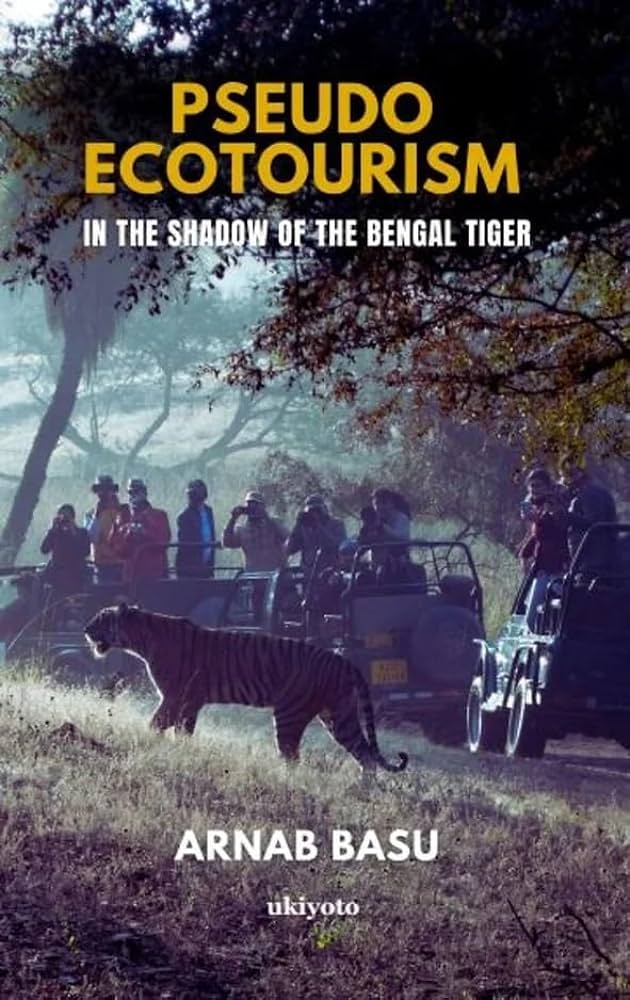Blurb:
I had left my marriage at thirty-five, and I was determined to become famous to cope with the rejection I was experiencing in my personal life. Then I met my childhood friend Vedavyasa, who was seeking his own fame and glory as a way to deal with his perceived shortcomings in both his personal and professional lives. As a result, we started pursuing wildlife photography and ecotourism as hobbies. Our sole goal was to capture images of the subcontinent’s Bengal Tigers in their natural habitat. However, via some terrible events, the immense landscapes of this great beast across the four nations that make up its habitat taught us some life-changing truths. Eventually, I had a mentor who gifted me with a philosophy for lifetime, “to get a better perspective, you have to lie down!”. This isn’t simply a wildlife enthusiast’s ideology; it’s the idea that led me to associate deep ecology and coin the phrase of “Pseudo Ecotourism.”
My Review:
“Pseudo Ecotourism” is a fascinating book by Arnab Basu. The title is intriguing because it combines “pseudo” meaning fake with “ecotourism”, suggesting a theme of exploring the true meaning of responsible travel.
The book tells the story of the author and his friend Vedavyasa, who turn to wildlife photography to cope with personal failures. Their goal — to capture Bengal Tigers in their natural habitat, but their journey taught them profound life lessons. The mentor’s philosophy, “to get a better perspective, you have to lie down,” became a guiding principle.
The author’s theme is clear: real ecotourism is about respecting and understanding nature, not just exploiting it for fame. This message is vital in a world where tourism often harms the environment. Through their adventures, Arnab and Vedavyasa learn to appreciate the deep ecology of the landscapes they explore, leading Basu to use the term “Pseudo Ecotourism”.
The writing style is captivating and accessible to everyone, even those completely new to wildlife. The author’s storytelling keeps readers hooked from the first page. He shares his experiences vividly, making wildlife photography and the natural world come alive. Each paragraph brings something new and exciting, ensuring that readers stay engaged.
The book doesn’t just focus on tigers; it also highlights other animals like frogs, snakes, and other animals, showing the rich biodiversity of various regions. The author’s ability to personify these animals adds a charming touch, making their stories memorable.
Moreover, the author discusses the principles of ecotourism and suggests ways to improve it, making the book educational as well as entertaining. His insights are thought-provoking, encouraging readers to think about how they can contribute to conservation efforts.
“Pseudo Ecotourism” deserves more attention. It’s a beautifully written book that offers both a gripping adventure and an important environmental message. It’s a must-read for anyone interested in nature, wildlife, and true ecotourism.

